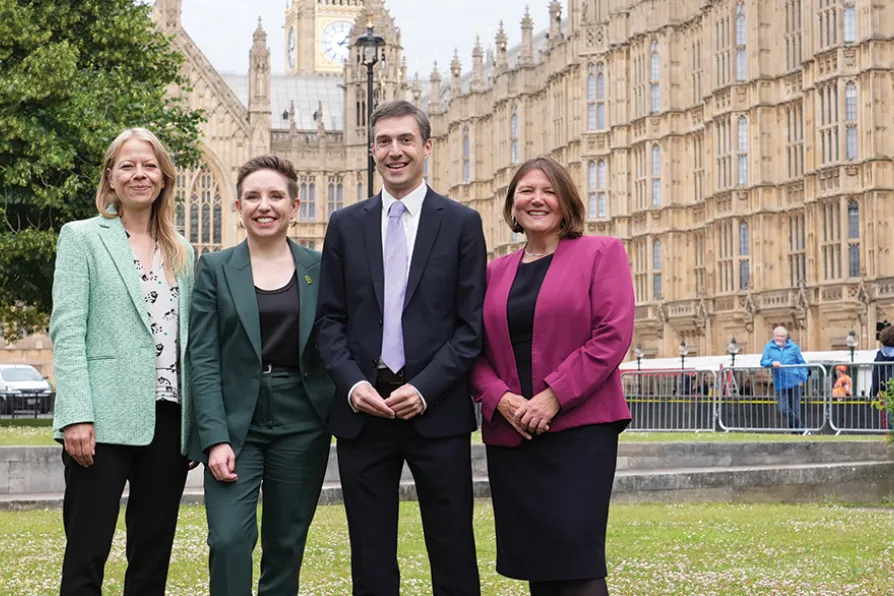Once the bustling heart of Christian pilgrimage, Bethlehem now faces shuttered hotels, empty streets and a shrinking Christian community, while Israel’s assault on Gaza and the tightening grip of occupation destroy hopes of peace at the birthplace of Christ, writes Father GEOFF BOTTOMS

 GREENS APPEAL: The four new Green MPs (L to R) Sian Berry (MP for Brighton Pavilion), party co-leader Carla Denyer (MP for Bristol Central), party co-leader Adrian Ramsay (MP for Waveney Valley) and Ellie Chowns (MP for North Herefordshire)
GREENS APPEAL: The four new Green MPs (L to R) Sian Berry (MP for Brighton Pavilion), party co-leader Carla Denyer (MP for Bristol Central), party co-leader Adrian Ramsay (MP for Waveney Valley) and Ellie Chowns (MP for North Herefordshire)
A post-election article by former Tory cabinet minister Justine Greening caught Eyes Left’s eye.
She congratulated Keir Starmer for his feat in bringing Labour back from the fringe to the mainstream.
There’s a primer in bourgeois politics. Forty per cent support for a radical programme equals “fringe.”

Sixty Red-Green seats in a hung parliament could force Labour to choose between the death of centrism or accommodation with the left — but only if enough of us join the Greens by July 31 and support Zack Polanski’s leadership, writes JAMES MEADWAY

From Gaza complicity to welfare cuts chaos, Starmer’s baggage accumulates, and voters will indeed find ‘somewhere else’ to go — to the Greens, nationalists, Lib Dems, Reform UK or a new, working-class left party, writes NICK WRIGHT

VINCE MILLS gathers some sobering facts that would inevitably be major obstacles to any such initiative











